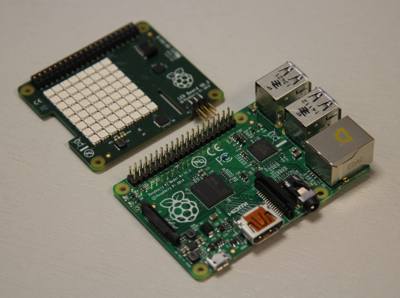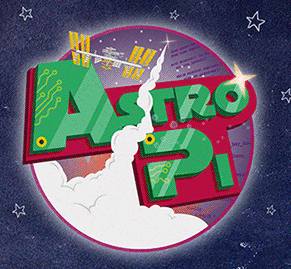| Astro Pi - What Can A Raspberry Pi Do In Space? |
| Written by Harry Fairhead | |||
| Sunday, 14 December 2014 | |||
|
UK school pupils are being challenged to write Rapberry Pi apps or experiments to run in space, using an Astro Pi board loaded with sensors and gadgets.
When British astronaut Tim Peake heads off to the International Space Station in November 2015 he will be accompanied on his 6 month mission by two augmented Rapsberry Pis, aka Astro Pis.
The Astro Pi board is a Raspberry Pi HAT and will comprise the following:
It will also be equipped with both camera module and an infra-red camera. All this gear makes it really suitable for doing real science and innovative experimentation out in space- and this is the focus of a competition open to all school children resident in the UK. The contest is being organized by the Raspberry Pi Foundation together with UK Space and the European Space Agency. Five themes have been devised to stimulate creativity and scientific thinking:
In the primary school age category (under 11s), teams will be asked to devise and describe an original idea for an experiment or application which can be conducted on the Astro Pi by Tim Peake during his mission. The two best submissions will get the opportunity to work with the Astro Pi team to interpret their ideas and the team at the Raspberry Pi Foundation will then code them ready for flight on the ISS. In the secondary school age group, the competition will be run across three age categories, 11-13; 14-16 and 16+. In the first phase, competitors can submit their ideas for experiments and applications. At least the best 50 submissions in each age category will win a Raspberry Pi computer and an Astro Pi board on which to code their idea. In Phase 2, all teams will develop code based on their original concept and two winning teams will be selected in each age category. During his mission Tim Peake will deploy the Astro Pis, upload the winning code whilst in orbit, set them running, collect the data generated and then download it to be distributed to the winning teams. At the Astro Pi launch event Tim said: There is huge scope for fun science and useful data gathering using the Astro Pi sensors on board the International Space Station. This competition offers a unique chance for young people to learn core computing skills that will be extremely useful in their future. It’s going to be a lot of fun! Also at the launch event, it was revealed that the UK Space Agency has been given a £2 million programme to support further outreach activities around Tim’s mission to help inspire interest in STEM subjects. As an incentive to be interested in data science and the IOT (Internet of Things) getting to make measurements in space seems out of this world.
The competition will be officially opened at the BETT conference in January and teams have until April 3rd for the first phase. See the Astro Pi site for details. IProgrammer's Real Raspberry Pi series will be looking at using temperature and humidity sensors (albeit in a domestic setting) so stay tuned or sign up for the I Programmer Weekly Digest.
More InformationRelated Articles
To be informed about new articles on I Programmer, install the I Programmer Toolbar, subscribe to the RSS feed, follow us on, Twitter, Facebook, Google+ or Linkedin, or sign up for our weekly newsletter.
Comments
or email your comment to: comments@i-programmer.info
|
|||
| Last Updated ( Sunday, 14 December 2014 ) |




